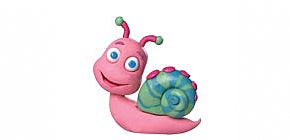Proper Nutrition While Nursing to Relieve Infant Gas
Roughly one-third of infants age 3 weeks to 4 months suffer from stomach aches and gas, known by the medical professional community as colic. Colic is a known phenomenon that stems from digestive system immaturity in newborns leading to a buildup of gas that causes stomach aches of varying degrees of severity. These stomach aches tend to appear at fixed times, mostly in the evening, during which infants bend and twist their bodies, cry without pause and struggle to fall asleep. There is no single solution that prevents infant gas, but there are a number of ways to relieve gas pain and calm your infant. These can include, cradling, rocking, massaging and more. In addition, many mothers and lactation consultants swear by the idea that changes to the nursing mom’s diet can influence and relieve gas pain in infants.
What will you eat?
Your infant responds to the nutrients you ingest, as some foods influence the makeup of your breast milk. And while this is not an exact science, over the years, a list of recommended foods to avoid while nursing, especially if your child suffers from gas, has been compiled. The list includes:
● Cruciferous vegetables, such as cauliflower and broccoli
● Dairy products
● Chocolate
● Citrus fruits
● Legumes, mainly chickpeas and beans
● Spicy or well-seasoned foods
Nutritionists and other professionals believe that creating a single, unified list of foods to avoid while nursing is a source of conflict and based, mainly, on myths rather than on facts. Legumes, for example, cause gas, as they contain nutrients that the body does not break down. They reach the large intestine, where they are broken down by bacteria. This breakdown activity can cause you, the mom, to experience gas, but its effects on your infant are inconclusive. Spicy or well-seasoned foods may change the smell and taste of your breast milk, but there is no evidence proving that your eating them will cause your infant discomfort.
Nevertheless, many mothers report that after eliminating one or more foods from their diet, the infant experienced a significant improvement vis-a-vis gas pain. As it is extremely important that you eat healthy and balanced meals during the nursing period, it is a good idea to examine your infant’s reaction to the foods you eat with moderation. As such, there is no need for you to avoid all of the foods listed above, but you can try and eliminate one food at at time from your diet for a period of a few days and see if there is a change in your infant’s behavior. It is important to remember that different women have different sensitivities and tendencies. It’s a good idea to seek out the advice of a lactation consultant before eliminating foods from your daily diet.
What will you drink?
Coffee? Better not to. Until the age of four months, infants break down caffeine very slowly. It remains in their blood for hours and can cause hyperstimulation and restlessness. There is no need to completely eliminate caffeine from your diet, but it is recommended to limit your caffeine intake to small amounts that you drink immediately following a nursing session. You should also avoid drinking caffeinated energy drinks and alcohol.
The fear of drinking soda is unfounded. The carbon dioxide that builds up in the intestines after drinking soda is what causes gas in you; totally unrelated to breast milk. Yet, while there’s no concern that your drinking soda will cause gas in your infant, most fizzy drinks contain large quantities of sugar, artificial sweeteners and food coloring. It is recommended to choose drinks like root beer, which are considered to be healthier.
And for dessert
Try and work on your technique. Many lactation consultants believe that most cases of infant colic are caused by improper nursing techniques:
● Improper latch can cause the infant to swallow air, leading to gas
● Switching the infant over to the second breast before the first has been completely drained can cause the infant to miss out on rich, fatty hind milk, leading to gas
It’s a good idea to consult with a certified lactation consultant to ensure your nursing position is meeting your infant’s needs and that they are not swallowing air while feeding.
Have you tried it all, only to feel that nothing’s working? Don’t worry. It’s hard to prevent infant gas, but you can ease the pain via warm hug, pampering massage, rocking or cradling, as well as buy administering dedicated medications, designed for newborns and lacking alcohol and sugar. These medications have been proven (through studies) as effective in breaking down gas and relieving stomach aches in infants. The good news is that after the age of 4 months, most cases of infant gas disappear, without a trace.


.jpg)
.jpg)
.jpg)
.jpg)



.jpg)
.jpg)
.jpg)
.jpg)

.jpg)

Contact us